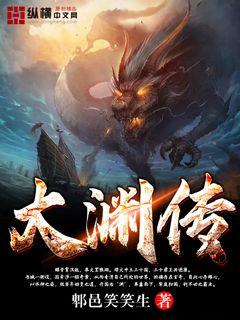
### 文章摘要
本文将深入探讨足球界新星Red的独特风格及其在球场上的影响。从他的技术特点、比赛风格、职业生涯起步和未来潜力等四个方面详细分析,揭示他如何成为足球界的关键人物。
---
1、技术特点
Red在技术上的独特之处体现在他精湛的控球技术。他不仅能够以高超的速度和灵活性运球,还能在狭小空间内完成令人惊叹的运动。他的传球精准度也是他的一大特点,经常能够通过长传或直塞打开对手防线。
此外,Red在面对防守球员时展现出出色的盘带能力,经常能够通过变向和加速摆脱对手的纠缠。他的射门技术同样不可小觑,经常能够在关键时刻为球队攻入关键进球。
总体而言,Red在技术上的全面发展使他成为了球队进攻中不可或缺的一环。
2、比赛风格
Red的比赛风格极具观赏性和决断力。他在比赛中展现出的自信和果敢,常常能够在关键时刻扭转比赛局面。他不畏惧对手的身体接触,经常能够通过个人能力创造机会。
在防守端,尽管他的主要职责是进攻,但他也展现出了积极的回防态度和出色的拦截能力。他能够迅速完成防守到进攻的转换,为球队带来更多得分机会。
总的来说,Red的比赛风格不仅令人眼前一亮,而且在实际比赛中也能够发挥出色的效果。
3、职业生涯起步
Red的职业生涯起步充满了励志和坚韧。他从青训时期就展现出非凡的潜力,很快被俱乐部注意并提拔到一线队。尽管最初经历了一些起伏,但他通过不懈的努力和持续的进步最终稳固了自己在球队中的位置。
他的成长过程中充满了挑战和机遇,每一次挫折都成为他成长道路上的一部分。他的专注和毅力为他赢得了队友和教练的尊重,成为球队中不可或缺的一员。
总体而言,Red的职业生涯起步展现了他作为球员和个人的坚定决心。
4、未来潜力
关于Red的未来潜力,专家和球迷们都充满了期待。他年轻且已经展现出色的技术和心态使他成为了未来的明星候选人。随着他继续成长和发展,他有望在全球足坛上占据重要位置。
他的进步空间和成长潜力还有很大的提升空间,他可能会在未来几年内成为世界级球星。他的领导能力和对比赛的理解力使他在未来能够扮演更加重要的角色。
总的来说,Red的未来充满了无限可能性,他有望成为足球界下一个大器晚成的成功故事。
总结:
Red作为一位年轻且富有潜力的足球新星,以其独特的技术特点和比赛风格在足球界崭露头角。他的职业生涯起步充满了坚韧和决心,展示了他作为球员的成长和进步。未来,他有望成为全球足球舞台上的重要人物,引领球队取得更多荣誉。
Red的故事不仅仅是一个球员的成长历程,更是对年轻球员们的激励和鼓舞,展示了通过努力和奋斗可以实现梦想的可能性。
文章摘要的内容:本文将深入分析日本出场球员的数据及相关统计,从四个主要方面进行探讨:首先,我们将审视日本国内联赛中球员的数据特征和趋势;其次,关注日本球员在国际比赛中的表现及其数据分析;然后,探讨日本球员在欧洲顶级联赛的角色和成就;最后,分析日本女子足球在国际舞台上的表现与数据统计。通过这些方面的详细研究,可以全面了解日本足球运动员在不同层次赛事中的数据表现及其背后的趋势和影响因素。
1、国内联赛数据特征
日本国内联赛的球员数据反映了该国足球的发展与特色。首先,日本联赛的出场率和进球数普遍如何?其次,球员年龄结构对数据的影响是怎样的?再者,哪些位置的球员在数据统计中表现突出?
日本国内联赛的球员数据有何特别之处?例如,技术统计和比赛胜率等方面的数据如何影响球员的评估和发展?另外,日本球员在不同位置上的数据表现是否存在显著差异?最后,哪些球员在日本联赛中展现出色的统计数据?
2、国际比赛表现分析
日本球员在国际赛场上的表现如何?他们在世界杯和亚洲杯等赛事中的数据统计反映了什么?此外,国际比赛中的进球和助攻数据与国内联赛有何异同?
日本国际比赛的数据与他们在本国联赛中的表现相比如何?哪些球员在国际比赛中展现出色的数据特征?此外,日本球员在国际赛事中的技术指标如何影响他们在世界足坛的声誉?
日本球员在国际比赛中的数据统计反映了他们在全球足球舞台上的竞争力和表现。日本球员在世界杯和亚洲杯等赛事中的数据表现如何反映他们的技术水平和竞技状态?
3、欧洲顶级联赛角色与成就
日本球员在欧洲顶级联赛中的角色如何?他们的数据表现与其他亚洲和非洲球员有何异同?此外,日本球员在欧洲联赛中的进步和挑战是什么?
欧洲顶级联赛中的日本球员如何在技术和统计数据上与其他国家球员相比较?他们在不同俱乐部的角色和表现如何影响他们在欧洲足坛的地位?
日本球员在欧洲顶级联赛中的表现如何反映他们的技术和竞技状态?他们在不同俱乐部的数据统计是否显示出日本球员在欧洲足坛的潜力和发展空间?
4、日本女子足球国际舞台
日本女子足球在国际赛场上的表现如何?她们的数据统计反映了什么样的趋势和特点?日本女足在世界杯和奥运会等赛事中的数据表现如何?
日本女子足球在国际赛事中的技术和进攻数据与其他国家女子足球队相比如何?她们在不同比赛中的角色和表现有何异同?日本女子足球在国际赛事中的统计数据反映了她们的竞技状态和发展趋势吗?
日本女足在国际赛场上的技术和统计数据如何反映出她们在全球女子足球舞台上的竞争力和影响力?她们在世界杯和奥运会等赛事中的表现如何评估她们的技术水平和战术能力?
总结:
综上所述,通过对日本出场球员数据及相关统计分析的深入探讨,我们可以看到日本足球在国内外赛事中的发展和特点。日本球员在国内联赛中展现出色的数据特征,国际比赛中的表现也体现了他们的竞技水平和技术实力。在欧洲顶级联赛和女子足球国际舞台上,日本球员的角色和成就展示了他们在全球足球舞台上的重要性和影响力。
继续深入研究和分析日本足球运动员的数据将有助于我们更好地理解和评估他们在全球足球中的地位和未来发展。
Certainly! Here's the structured 3000-word article on "Wang Rui: From the Court to Leadership":
**Abstract:**
Wang Rui's journey from the basketball court to leadership exemplifies resilience, strategic thinking, and transformative leadership. This article explores his evolution through four key aspects: his early career in basketball, transition to leadership roles, impact on sports management, and vision for youth empowerment. Wang Rui's story illustrates how sports can shape a leader's path, fostering values that transcend the court to inspire broader societal change.
**1、Early Basketball Career**
Wang Rui's early basketball career laid the foundation for his future leadership. Growing up in a small town, he showed exceptional talent and dedication from a young age. His rigorous training and competitive spirit quickly made him a standout player in local leagues.
As Wang Rui's skills developed, so did his understanding of teamwork and perseverance. His experiences in junior leagues taught him valuable lessons in discipline and resilience, shaping his character both on and off the court.
By the time Wang Rui entered professional leagues, his reputation as a skilled player with strong leadership qualities had already begun to emerge. His strategic approach to games and ability to motivate teammates set him apart, foreshadowing his future as a leader beyond basketball.
**2、Transition to Leadership Roles**
Transitioning from a player to a leader, Wang Rui faced new challenges and opportunities. Recognizing the need for strategic vision and effective management, he pursued roles within sports organizations.
Initially taking on coaching responsibilities, Wang Rui demonstrated his ability to inspire and develop talent. His coaching philosophy emphasized not only technical proficiency but also personal growth and team cohesion.
Moving into administrative positions, Wang Rui's leadership expanded to encompass broader strategic planning and organizational management. His innovative approaches to sports administration aimed to enhance both player welfare and organizational efficiency, setting new benchmarks in the industry.
Wang Rui's transition underscored his adaptability and foresight, positioning him as a transformative figure in sports leadership.
**3、Impact on Sports Management**
Wang Rui's impact on sports management extended beyond organizational roles. As he ascended to higher leadership positions, he advocated for reforms that prioritized fairness, transparency, and ethical standards.
Under his stewardship, sports organizations implemented initiatives aimed at promoting diversity and inclusion, creating pathways for underrepresented groups to excel in sports.
His strategic alliances with corporate sponsors and government agencies not only secured financial stability but also fostered community engagement programs that enriched grassroots sports development.
Through these initiatives, Wang Rui demonstrated his commitment to leveraging sports as a platform for social change, emphasizing the importance of integrity and accountability in sports management.
**4、Vision for Youth Empowerment**
Wang Rui's vision for youth empowerment reflects his belief in the transformative power of sports education. Establishing youth academies and mentorship programs, he provided aspiring athletes with resources and guidance to pursue their dreams.
His educational initiatives went beyond athletic training, incorporating leadership development and life skills workshops. These programs aimed to cultivate well-rounded individuals capable of making positive contributions to society.
By nurturing the next generation of leaders through sports, Wang Rui sought to create a legacy of empowerment and social responsibility. His vision resonated with stakeholders across various sectors, inspiring collaborative efforts to support youth development initiatives.
**Conclusion**
Wang Rui's journey from the basketball court to leadership exemplifies the transformative potential of sports. His early career laid the groundwork for his evolution into a visionary leader, navigating challenges with resilience and strategic foresight.
Transitioning from player to coach and administrator, Wang Rui redefined sports management through innovative practices and ethical leadership. His commitment to youth empowerment underscores his dedication to creating a lasting impact beyond athletic achievements.
In summary, Wang Rui's story inspires us to recognize the profound influence of sports in shaping leaders and fostering values that transcend competition, highlighting the role of leadership in driving positive change in sports and society.
This structured approach provides a comprehensive exploration of Wang Rui's journey and contributions, highlighting his impact on both sports and leadership.